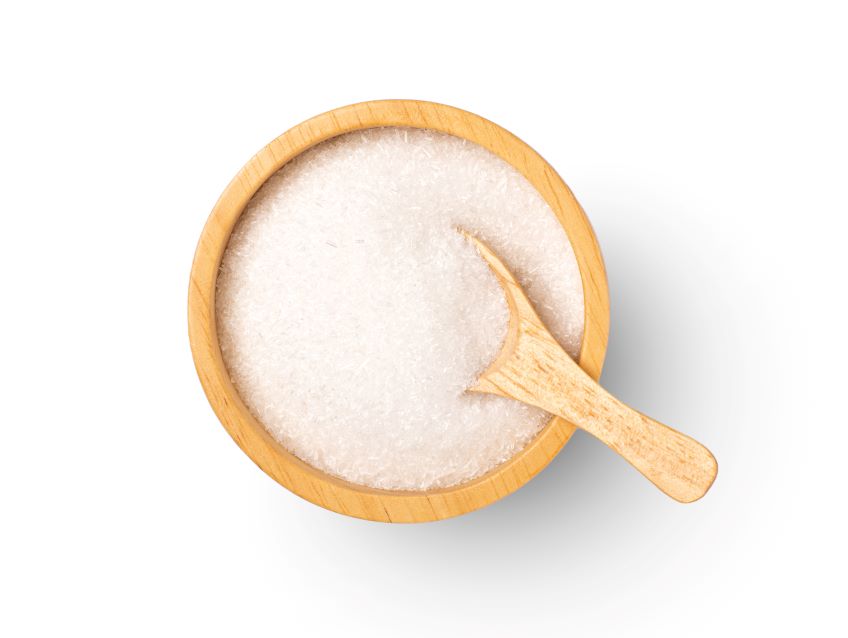
Do you ever change your mind? Most of us do, on occasion. Perhaps we learn something new that just makes sense, or that proved our former belief to be false.
As a registered dietitian nutritionist who has worked with children with special needs, I had to change my long-held recommendations about when to introduce potentially allergenic foods to infants. For decades, the standard was to wait until at least a year of age, when the infant’s immune system was more developed, before introducing foods like peanuts, fish, and eggs.
 Then, credible research found that introducing these foods as soon as solids were introduced, at ages 4-6 months, actually reduced the chances of allergic reactions. At first, health professionals, including myself, and parents were skeptical. Fortunately, too much solid evidence accumulated to not support this new protocol for introducing foods. I am ethically bound to practice evidence-based nutrition, and when there’s enough credible evidence, I have to change my recommendations and my practices.
Then, credible research found that introducing these foods as soon as solids were introduced, at ages 4-6 months, actually reduced the chances of allergic reactions. At first, health professionals, including myself, and parents were skeptical. Fortunately, too much solid evidence accumulated to not support this new protocol for introducing foods. I am ethically bound to practice evidence-based nutrition, and when there’s enough credible evidence, I have to change my recommendations and my practices.
What evidence would make YOU change your mind about so-called “icky ingredients”?
Let’s Talk Monosodium Glutamate (MSG)
Background: A letter-to-the-editor of a medical journal over 50 years ago posed a question about whether MSG – among other foods/ingredients – could have caused the writer’s symptoms like dizziness and rapid heartbeat. Since the writer had supposedly experienced symptoms after eating Chinese food, it was dubbed “Chinese restaurant syndrome” (CRS).
 After several decades, and numerous credible clinical studies, virtually no evidence for MSG causing these symptoms has been found, even when large amounts of MSG were administered to persons who self-identified as having CRS. This helped reputable organizations, like the US Food and Drug Administration, and just about every reputable global authority to verify the safety of MSG. Yet, “elite” food culture still demonizes it as one of the “icky” ingredients they don’t want in food.
After several decades, and numerous credible clinical studies, virtually no evidence for MSG causing these symptoms has been found, even when large amounts of MSG were administered to persons who self-identified as having CRS. This helped reputable organizations, like the US Food and Drug Administration, and just about every reputable global authority to verify the safety of MSG. Yet, “elite” food culture still demonizes it as one of the “icky” ingredients they don’t want in food.
Why MSG Causing CRS Can’t Pass the Smell Test
 MSG as a cause of these symptoms doesn’t stand up to plausibility. Here’s why:
MSG as a cause of these symptoms doesn’t stand up to plausibility. Here’s why:
- MSG is a pretty simple compound with only 2 components: sodium and glutamate.
- We get sodium from food, and it’s an electrolyte we need. Yes, most people get too much sodium from their diets, but MSG can actually help here. More about that later.
- Glutamate, we also get from our diets. It’s an amino acid, one of the building blocks of protein. The thing is, we actually don’t need this amino acid from our food, because our bodies can (and do) make their own glutamate. This is why it’s one of many “non-essential” amino acids.
- MSG is highly soluble, so as soon as you consume MSG, it separates into its sodium and glutamate components. It’s not absorbed as MSG.
Over 90% of the glutamate stays in the gut and never even makes into the bloodstream. Why? The gut is where glutamate performs most of its roles – everything from helping modulate our immune system, to synthesizing key molecules for metabolism, and more.
“OK, but eating a Chinese meal gives you a whopping dose of MSG.”
 Wrong. Glutamate is ubiquitous in the diet, present in pretty much all protein foods, whether animal- or plant-based. You’re eating far more glutamate from these protein foods than you’d ever get from the small amount of MSG added to food. Plus, your body makes about 40-50 grams of glutamate daily, on its own. At most, you’d get only about ½ a gram of added MSG in food in a day.
Wrong. Glutamate is ubiquitous in the diet, present in pretty much all protein foods, whether animal- or plant-based. You’re eating far more glutamate from these protein foods than you’d ever get from the small amount of MSG added to food. Plus, your body makes about 40-50 grams of glutamate daily, on its own. At most, you’d get only about ½ a gram of added MSG in food in a day.
Even giving research subjects larger amounts of MSG than they’d ever get from food didn’t increase blood levels of glutamate. Why? Because dietary glutamate stays mostly in the gut, where it feeds the cells of the digestive tract and performs numerous other functions.
“Umami” = Glutamate (& MSG!)
 Ever hear chefs talk about dishes that are rich in “umami”? Along with sweet, salty, sour, and bitter, umami is the “fifth taste”. Umami is more about the intensity of taste, not a particular flavor.
Ever hear chefs talk about dishes that are rich in “umami”? Along with sweet, salty, sour, and bitter, umami is the “fifth taste”. Umami is more about the intensity of taste, not a particular flavor.
Glutamate is responsible for much of the flavor intensity of foods like mushrooms, tomatoes, and parmesan cheese. Hard to imagine Italian dishes without at least one of these foods!
Could MSG Help LOWER Sodium Intakes?
Yes, MSG has sodium. But using MSG can help you LOWER your sodium intake. Here’s why:
- Gram-for-gram, MSG has 62% LESS sodium than regular salt.
- It also provides better flavor enhancement than just using salt.
- More flavor and LOWER sodium? That’s a win-win.
You don’t want to do a complete substitution of MSG for regular salt, because your dish may not taste as good without some salt, but I like a 1:1 blend when I cook. That still reduces the added salt by 31%. And all anyone notices is good flavor.
Back to my original question: Does the above rationale, explanation of safety and benefits, and the 50 years during which controlled, double-blind studies that find NO evidence of MSG causing symptoms help you feel more comfortable about MSG? If not, what evidence would you need to change your mind?

